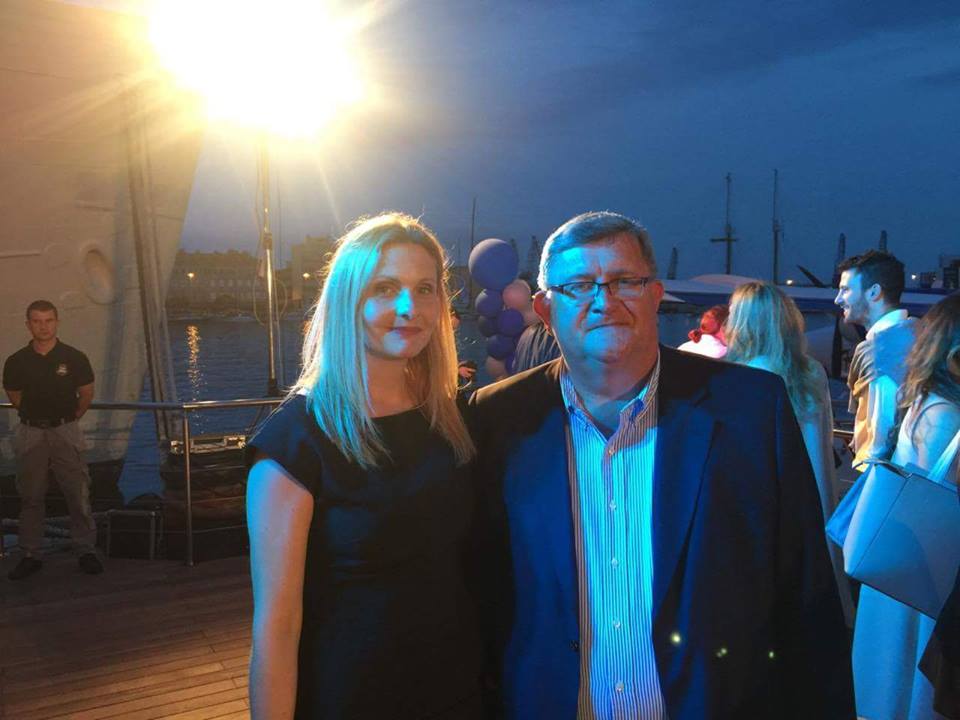While his political party is keeping surprisingly quiet on the recent government turmoil, Rijeka mayor Vojko Obersnel talks about the effects or the crisis on local projects.
The opening of the sea airport in Rijeka this weekend was a great opportunity to talk to the mayor Vojko Obersnel, and on June 13, 2016, we give you his view of the current situation in Croatia.
Considering that we are attending the opening of a seaplane station in Rijeka, in your opinion, how much will this new service contribute to the development of Rijeka and its communication with nearby islands?
The fact that we have this service is extremely important for the development of tourism not only in Rijeka but the entire region. Rijeka had seaplanes between the two world wars, but their importance now is a lot greater than it was back then, all tradition aside. Now both locals and tourists will be able to travel to Rijeka and nearby islands within minutes, and in the near future to Ancona, Venice, and Trieste. It was a lucky coincidence for us that someone as stubborn and determined as Klaus Dieter Martin from the European Coastal Airlines came along.
During the opening, we heard how much was done in the Port of Rijeka, the city has won the title of the European Culture Capital 2020, the city is flourishing, and yet, from your own speech tonight we were able to see that some projects, like the seaplane one, can take up to 15 years to take off because of bureaucratic hurdles. What is Rijeka doing to attract investors and strategic projects?
Our aim is for our administration to be as efficient as possible. All the things that depend on us, on the local government, we can resolve within 30 days. Unfortunately, Croatian legislation is quite complicated, full of unnecessary bureaucracy and I am aware that investors are having a hard time dealing with all the obstacles. For this particular project, we immediately gave our permission in terms of location and spatial documentation, however, this investor had to wait for permits from the Port Authority, the Harbour master’s office, and various other institutions on a State level. Unfortunately, I am afraid that until we change our legislation on a State level so it becomes more investor and project friendly, the only investors that will succeed are the ones that have enough drive and determination to fight the red tape.
Since we cannot say we are a new EU member since it’s now been two years since our entry, how long will it take until we actually start acting like a member, especially when it comes to laws and regulations that relate to our business environment?
Our legislation is in line with the EU but the problem is our way of thinking. Our bureaucracy is massive. Our administration has to be more efficient. When it comes to strategic projects we simply have to change our regulations in order to come up with a solution faster.

Mayor Obersnel with TCN reporter Danni Matijaca
Are you communicating with the main SDP office these days or are things more quiet for you here in Rijeka? Can you comment on everything that’s going on in the government?
We are living in a very absurd moment, we’re almost feeling uncomfortable because now we believe absolutely everything is normal and possible. I hope this whole story will come to its conclusion as soon as possible, regardless of what that final conclusion actually is. I believe it is of utmost importance for Croatia to have an efficient government that will work in the interest of the country and its citizens. This situation doesn’t suit anyone, we’ve lost 6 months because practically nothing happened in the last 6 months.
And my last question, can you feel the effects of the government crisis here on a local level, are you able to continue working on your projects and are all the channels of communication between government institutions and local administration still open?
We can feel the effects; we feel them a lot. Most of our strategic projects within the city are connected to government institutions such as Croatian roads, Croatian waterworks, Port Authority etc. In the last 6 months we’ve been in some sort of a limbo since some of the institutions now have new management, some are still waiting for new appointments, but the entire process was not completed. People don’t dare to make any decision and investments are put on hold even though some of them should have been realized months ago. Unfortunately, when it comes to this particular subject, I think we can say that this entire year has now been lost, and even if we do get a new government, through new elections or any sort of reshuffling, we won’t be able to turn back time and the damage has already been done.










